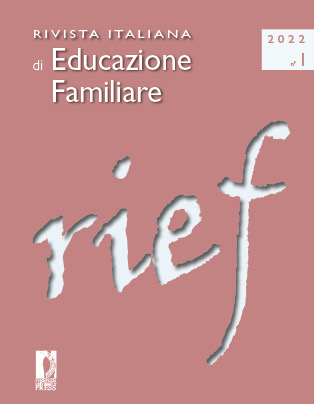Benessere e salute sociale delle famiglie vulnerabili nella fase post-pandemica: spunti e riflessioni per la formazione degli educatori 0-6 da una ricerca in Lombardia
Published 2022-07-06
Keywords
- social health,
- wellbeing,
- 0-6 educators,
- interdisciplinary,
- professional development
How to Cite
Abstract
In this paper, starting from some data that emerged from a research on the daily life of children and families during the Covid-19 pandemic (Mantovani et al., 2021; Picca et al., 2021), we open a reflection on the need to rethink the professional profile of 0-6 educators in an interdisciplinary sense to make the preventive and supportive action of fragile families more incisive. EU literature and documents have highlighted the pedagogical potential of multidisciplinary teams with respect to taking care of vulnerable families, underlining how interdisciplinary action increases the probability of intercepting signs of unease in an holistic and systemic way (Milani et al., 2015), avoiding the fragmentation of the support intervention, acting on resources and counteracting the spiral of disadvantage. The thesis here argued is that 0-6 educators can play a crucial role in this perspective, acting as territorial “sentinels” or “guarantors” of well-being by monitoring the social health conditions of families, but they must be trained to build bridges and weaving networks in an intersectional and multidisciplinary work perspective. A work at a micro level, starting from the ECE levels, which over time can trigger virtuous networks of collaboration to contrast the vulnerability of families at the meso- and macro- system level.


